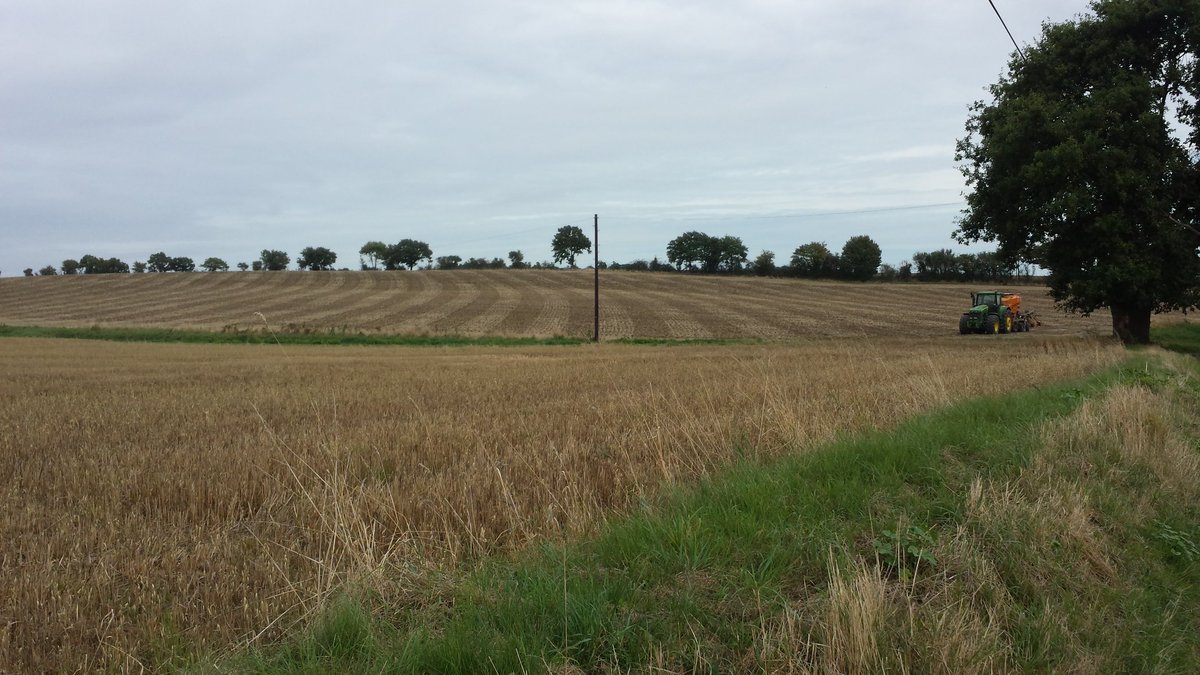Yes we've had unexpected and un-forecast showers most days over the last couple of weeks. But until then it had been exceptionally dry since mid July, which led to my complacency with not pre-baiting bean stubbles as is my normal practice since using a Claydon for 5 years now, and assuming 5kg at drilling would suffice. In a wet autumn I find it nigh on impossible to control slugs, I don't know what I am doing wrong. And before someone says it's all the insecticides I use - I haven't sprayed one in wheat for 4 years, and only in rape the first time this autumn where areas were being lost to flea beetle. Maybe I could concede it could be my yellow drill though...
I'm not sure whether it makes a huge difference or not when there is heavy land and lots of residue involved, but one of the theoretical reasons we liked the Mzuri was for the extra consolidation, especially the rear press wheels with adjustable hydraulic pressure. There is always the threat of awkward punctures and bearings going but as it's doing a fair bit of work at the front, it's also putting it back down well again afterwards. Perhaps doesn't make any difference in practice, but if you believe the marketing...
http://mzuri.eu/slugs-favour-direct-drilled-soils/
Conversely this would probably be a negative in wet conditions, as I sure James has experience of.
Perhaps your wheat is a victim of such a successful bean crop prior; so much residue on top. In the event of our beans on heavy land this year being a success, I have drilled them at about 70 degrees to the tramlines (albeit with a big old curve on them accidently)

I made myself a lot of short work drilling but our combine doesn't spread the mulch very far so after combining them next Summer I can whizz along in the Fastrac in the same direction as the tramlines (so longways) with the old Dunham Lehr

and try and spread the residue out from the 'swath' and further across the header width. If you get me. But then your combine appears to have a good chopper spread on it so perhaps a non-issue. I don't think from my limited knowledge you've done anything wrong at all given the conditions this year, but in hindsight I am glad we pre-baited our bean stubble, and going forward I'm going to try to insist on any stubble with residue getting baited before drilling, so in our case that'll be grass and beans. Oat straw removed obviously.
It was bare most of the way through the summer. It never really greened up. Made sure to space the Terrastar with a decent spacing between the two to try and catch any laid eggs. Rolled before and after drilling. Seed had Deter as well which certainly hasn't avoided a problem. Have been charging around in the wind trying to firefight. Really quite concerned that there is this much of a problem in what have been such benign conditions. Couldn't have asked for much better. Lighter land portions of this block are OK, but the heavier land is not great.
Uh oh... Try to keep calm...





